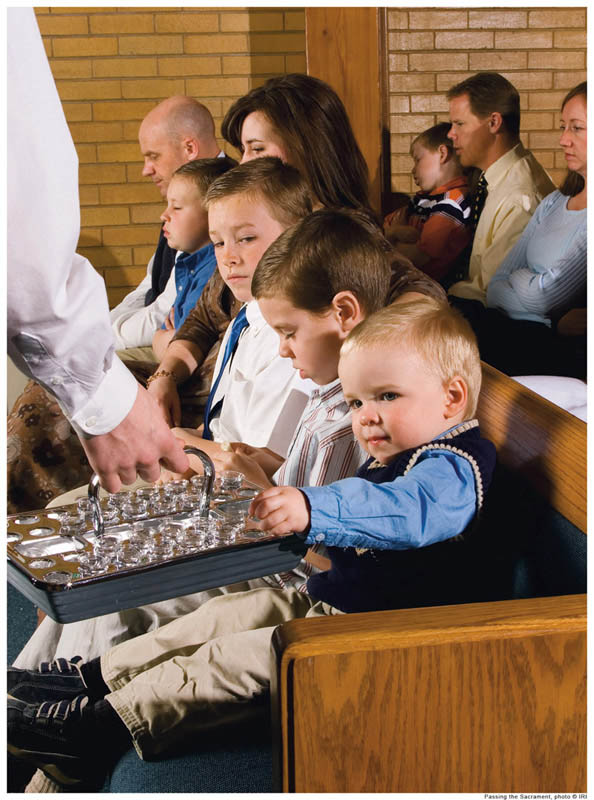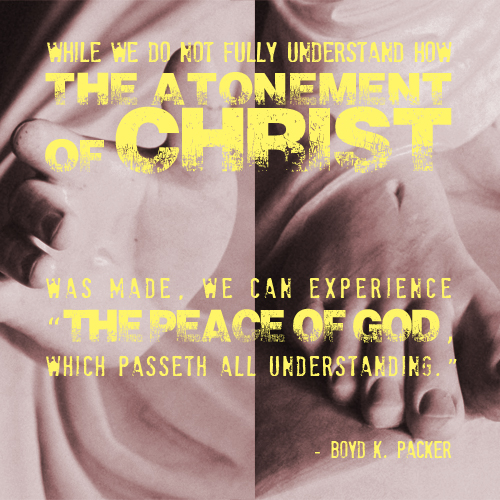When Jesus Christ created the earth under God’s direction, he took only six of the allotted days to do the work. The seventh day He rested, and He commanded Adam and Eve to set aside that seventh day each week to rest and to worship.
Remember the sabbath day to keep it holy.
“Six days shalt thou labour, and do all thy work:
“But the seventh day is the sabbath of the Lord thy God: in it thou shalt not do any work, thou, nor thy son, nor thy daughter, thy manservant, nor thy maidservant, nor thy cattle, nor thy stranger that is within thy gates:
“For in six days the Lord made heaven and earth, the sea, and all that in them is, and rested the seventh day: wherefore the Lord blessed the sabbath day, and hallowed it.” (Ex. 20:8-11.)
Today, that standard has become lost. Many people do consider the Sabbath to be a day of rest, but they interpret it as a day of play. Even those who attend church leave the building and head off to a restaurant, a park, or a football game. They leave God behind in the church building and don’t give him any further thought that day.
The commandment given to Moses was to keep the Sabbath Day holy, meaning the entire day. Six days belong to us, to do with them as we choose, but God asks for just one of those days to be focused entirely on Him.
Keeping the Sabbath Day holy is critical to our eternal well-being. Those who do it and choose wisely how to do it find they approach the challenges of the coming week feeling more peaceful and better able to make Christ-centered choices. They use the opportunity to get to know God better and to strengthen their relationship. It can be challenging, during a busy work week, to find uninterrupted time for this, and the Sabbath, when dedicated to this purpose, allows a person to find that time.
Church attendance, of course, is an important part of the process. This allows us to be with others who share our faith and it allows us to be taught by others, giving us new insights into the gospel. If we also have church work, it allows us to learn the gospel at a deeper level than we might otherwise take the time to do, and to serve God and others. Church attendance gives us an opportunity to partake of the sacrament (communion) and renew the covenants (promises) we’ve made to God.
The time after church is more challenging, because we have to choose for ourselves how to spend it. We often hear so many lists of things we’re not supposed to do that it becomes difficult to figure out what we can do. In general, appropriate Sabbath activities include:
Those things that bring us closer to God
Those things that serve others.
Those things that strengthen family relationships.
Now, there are things that fit into those catagories, but still don’t meet the standards of Sabbath activity. For instance, going to an amusement park might strengthen our family, but it’s meant to be done on a Saturday. Sabbath family time should be quiet and meaningful. Appropriate ways to spend time with the family on the Sabbath might include quiet conversation, reading scriptures together, having a family council meeting, or working together on a quiet service project.
Sabbath activities should be meaningful and peaceful, and should be done without spending money. A person who lives alone might choose to visit someone who is lonely or ill, write letters to family members, work on family history, or embark on a systematic study of the Bible.
On the Sabbath, we stay out of the world and spend our time in Godly places-our churches and our homes. The amusement parks and baseball stadiums will still be there next Saturday. Today, the television can bring those worldly places into our homes, forcing us to be even more cautious in how we spend our time.
We also dress differently on the Sabbath. We wear our nicest clothing to church, and remain nicely dressed throughout the day, in order to honor God on His day. While children won’t stay in fancy clothing, they can still wear special clothing that is appropriate to wear on a sacred occasion.
Only necessary work should be done-simple meals can be prepared, or meals can be prepared ahead. Children must be cared for and entertained, but those old enough to participate in the Sabbath can be given special toys that are quieter and that focus on God, such as flannel board stories from the Bible, scripture story books, and gospel games. If these toys are reserved for the Sabbath, they help the child learn at a very young age that there is something special about the Sabbath Day.
Marvin J. Ashton warned, “Sometimes the freedoms and blessings of the Sabbath can be lost by attitudes that allow selfishness and lack of personal involvement in tried-and-true patterns. Sabbath days can be lost an hour at a time. Sabbath days can be lost an outing at a time.” (Marvin J. Ashton, “‘Strengthen the Feeble Knees’,” Ensign, Nov 1991, 70)
To keep from losing our Sabbath for even an hour, it’s important to have a plan. Keep a list of appropriate Sabbath Day activities that can be viewed and chosen from. If an item on the list turns out not to promote spiritual feelings, remove it and put another activity in its place. Teach children to consult the list as well. If you take a few minutes each Saturday to plan your Sabbath Day, you’ll soon find the day is too short for everything you hoped to do.
John H. Groberg offered this promise to those who honor the Sabbath:
“Does the Lord love and bless those who keep the Sabbath day holy? I testify that he does in eternally meaningful ways. I further testify that when we eventually see things through the proper perspective of eternal truth, we will be amazed at how much we were blessed in important-though often unperceived-ways through keeping the Sabbath holy; and to our sorrow we may sense how many blessings we kept from ourselves by not consistently keeping the Sabbath day holy.
There is a direct correlation between the proper observance of the Sabbath and true reverence for God, which includes obedience to his other commandments.” (John H. Groberg, “The Power of Keeping the Sabbath Day Holy,” Ensign, Nov 1984, 79)
About Terrie Lynn Bittner
The late Terrie Lynn Bittner—beloved wife, mother, grandmother, and friend—was the author of two homeschooling books and numerous articles, including several that appeared in Latter-day Saint magazines. She became a member of the Church at the age of 17 and began sharing her faith online in 1992.






